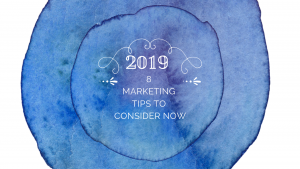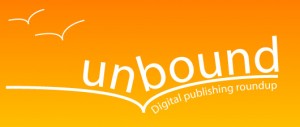Digital
We are so excited to welcome our newest contributor to Writer Unboxed—-Ann-Marie Nieves! Ann-Marie is the founder of the highly respected company Get Red PR, with expertise in PR, advertising, marketing, copywriting, community relations, social media, and more! From her bio:
Ann-Marie is a communications generalist grounded in traditional media and proficient in accessing the power of social media. Within traditional outlets, she has garnered placements in media as diverse as: The Wall Street Journal, The New York Times, CNN, NPR, Fitness, Parade, Working Mother, Fox Business Network, Life & Style, InStyle, E!, New York Magazine and The Oprah Winfrey Show.
Welcome, Ann-Marie!
It’s my 20-something year in PR, my 10th in social media, and good ole lucky 13 as a tiny business owner. While I’m thoroughly enjoying the wisdom of my 40s, I can honestly say that each day at my desk, seated in my well-worn chair, feels brand new.
You’ve seen the substantial changes in the media world in 2018—several magazines will cease printing or reduce print schedules. (We’ll miss you Glamour!) You’ve experienced the seismic shifts in social media world. (I can follow #dogsofinstagram hashtag?!) While much has been written in the marketing communications sphere about highlights for 2019, here’s what I’d like my colleagues in words to pay attention to:
Read MorePlease welcome former WU contributor Jane Friedman back to WU today! Jane has 20 years of experience in the publishing industry, with expertise in business strategy for authors and publishers. She’s the co-founder (with WU’s Porter Anderson) of The Hot Sheet, the essential industry newsletter for authors, and has previously worked for F+W Media (home to Writer’s Digest) and the Virginia Quarterly Review.
Jane’s newest book is The Business of Being a Writer (University of Chicago Press); Publishers Weekly wrote that it is “destined to become a staple reference book for writers and those interested in publishing careers.”
In addition to being a professor with The Great Courses, Jane has delivered keynotes and workshops on the digital era of authorship at worldwide industry events, including the Writer’s Digest annual conference, San Miguel Writers Conference, The Muse & The Marketplace, Frankfurt Book Fair, BookExpo America, LitFlow Berlin, and Digital Book World. Find out more at janefriedman.com.
A Smarter Author Platform for the Digital Era of Publishing
Author platform, in its simplest form, is an author’s ability to sell books. What that platform looks like, or how it works, varies from author to author: Some are big names who can attract attention with any book they release, others have figured out how to harness a local or regional fan base to spread word of mouth, and still others know how to use digital media for visibility.
But by far, digital media—and social media specifically—is the most prevalent and straightforward way that authors are now visible to readers and sell books. In some ways, this has changed publishers’ expectations—and what authors need to do regardless of how they’re published—but in other ways, the game has remained exactly the same. It’s just that now there are more game expansion packs, more players to navigate, and more rules that tend to change in the middle of game play.
Stop Focusing on Social Media Numbers and Look at Your Lead Gen Strategy Instead
When social media was still relatively new, there was a lot of focus and attention on the numbers. How many followers do you have? How many likes? How many shares?
While numbers are still a surface-level indicator of your platform strength, it’s too easy to boost social media activity in an artificial way, leading to numbers that are fairly meaningless. (Even with my own 224,000 followers on Twitter, which is 100% organically grown, a good portion consists of fake accounts that contribute nothing to my platform.) This is why there’s been more attention and focus lately on email newsletters—which indicate more highly engaged readers or followers, not casual or fake ones—and authors collaborating to cater to rather specific audiences or markets, such as Tall Poppy Writers.
A strategic author should evaluate their platform strength on three levels:
Social media can be disappointing when it comes to uncovering new readers if you aren’t spending ad dollars, but it does a great job at engaging people who are already aware of you and your work. Discounts and freebies—regardless of where they’re offered—tend to be better tools for finding new fans. I often hear from authors […]
Read More‘Data Overwhelms, It Overflows’
The writing community, as a whole, can get tired of something. Just like a person, the whole crowd, from their outlawed prologues to their too-late afterwords, can talk itself into one planetary yawn.
And this is the case with platform.
Years ago, platform was the word, and the word it was, and its buzz vibrated in our nightmares and its phantasms implied our inadequacies and its terrors launched a thousand online courses for writers, many of those seminars and webinars and training bazaars run by people who had less platform than the people paying for them.
One of the problems was that it took us a long time to get the right words to explain what a publisher or agent might mean when sending us into Munchian screams by quietly asking, “And how’s your platform, dear?” We work with words for a living, you know. And so we couldn’t find the right ones. The right words. For platform.
This was always clearer in nonfiction, of course. That superb medical guidebook you wrote, for example. You mean you’re not a doctor? And no one more than three blocks from your home has ever heard of you?
And yet even in nonfiction, we failed to get the right messages across. I was asked recently by a very fine writer–and not without stern indignation–whether it wasn’t the publisher’s job to supply the platform for an author on current politics. This reflects a confusion we’ve allowed to linger. The answer is no. Not even one of the Big Five can make you a veterinary surgeon Great or Small, or a Skyfaring pilot, or a Fiery and Furious media pundit.
Here’s something else we got wrong. Platform is a factor in the salability of fiction, too. While you may not be dispensing twice-weekly advice on dog health or air travel or a failing presidency, you can still be asked, How many followers did you say you have? And Who knows you? And Why would anybody pick up a book with your name on it?
Particularly in the case of a strong debut, yes, we can look to the publisher help carry the load of establishing an author’s platform. And in all cases, publishers must market their books, and vigorously, and in alliance with their authors and their agents. And this is something everybody isn’t clear on yet, either, as you may know.
But if we look at platform now, things have moved along since the days when these were our fretful focal points. There’s a new factor to consider. Allow me to scare you, won’t you?
We have some very fine, if worrisome help on that, some new data, as it were.
Read MoreWarning: Hacks for Hacks tips may have harmful side effects on your writing career, and should not be used by minors, adults, writers, poets, scribes, scriveners, journalists, or anybody.
Have you heard of Patreon? It’s a company that empowers crowd-sourced patronage of the arts, including but not limited to authors. By pledging monthly support at one of various patronage tiers, each with its own level of perks and rewards, you’re able to support your favorite writers directly. I have recently started my own, and it is my fondest wish that your patronage does not include me.
You may know me as famous author Bill Ferris. But I am also a single dad with a full-time job and not very much time to write. By supporting my Patreon, you’re just one more person for whom I must drop what I’m doing and cobble together your monthly rewards, which are terrible. Worse, this busywork distracts me from my main writing projects, to say nothing of spending time with my family or doing my mentally taxing day job.
However, it has come to my attention that you don’t like me, or are at the very least indifferent to my suffering. You are willing to prey upon my greed and bottomless need for praise and validation in exchange for a few lousy entertainments once per month, to diminishing returns. So be it. Behold, the instruments of my destruction. Do your worst, patrons.
Tier 1: Nuisance ($1 or more per month)
You believe you’re supporting me, and I know your heart’s in the right place. You’ll get access to my Patron-only blog, which is a thing I apparently have to write now.
Tier 2: Least-favorite Friend ($5 or more per month)
You’ll get access to my Patron-only blog, as well as a forum where you can ask me questions like I’m some kind of advice columnist, and I’ll be honor-bound to give you guidance of dubious quality. Think of all the things you could buy for five bucks–an ice cream cone, a magazine, a bottle of wine from Trader Joe’s; these are all things that could bring you joy without burdening me with extra work and without further raising your expectations, which I guarantee I won’t live up to.
Tier 3: Troll ($10 or more per month)
Jeez, you’re really serious about this, aren’t you? What do you actually think you’re going to get that’ll be worth $10? I guess I’m now contractually obligated to give you all the “rewards” mentioned above, PLUS the raw, unedited, poorly organized first draft of whatever story, novel, or essay I happen to be working on at the moment. (You’ll notice I capitalized the word “plus” here to imply this is not a perk, but a threat.)
Tier 4: Antagonist ($25 or more per month)
Oh, sorry, I didn’t notice you’d decided to contribute at this level, as I was busy playing catch with my sons whom, by the way, are growing up so fast and will not for long see the world through the innocent eyes of children. Welp, no time for that now, because I guess have to do a live chat/Q&A session with my $25 subscribers. During the sesh, you’ll get to ask me profound questions about writing that I will be […]
Read MoreImage – iStockphoto: Celafon
Suiting Up for the Attention Economy
From time to time–many journalists know this moment—it feels as if several stories or trends you’ve been covering (or trying to dodge) start locking into place in some sort of shape or design or purpose. Call it “news relationship syndrome.”
This happened for me at the beginning of the month, and it brought together:
In Berlin, Michael Tamblyn of Kobo had introduced the idea of a “fifth wave” in book retail, and this is something that Jane Friedman and I wrote about in the May 3 edition of The Hot Sheet, our newsletter for authors. Tamblyn was concerned that industry players today might be breathing a sigh of relief and thinking that the digital scare has passed, that they can just “get back to publishing and making books without having to worry about the industry remaking itself.”
Tamblyn describe four historical “waves” of publishing retail:
And then he dropped his bombshell: “The fifth wave,” he said, “isn’t a format shift. And it isn’t a change in where books are sold or distributed. It isn’t subscription vs. single-title sale. It isn’t about how much a book gets sold for at all. Instead, it is the commodification and commercialization of attention.”
Welcome to the wars of attention.
And as we trundle out onto this unholy, “unpresidented” battlefield, I want you to think about this brilliant phrase that Tamblyn lobbed at us like a mic-drop: “It is an arms race of monetized attention.”
The mechanized (algorithmic) warfare around you is being waged by Netflix, Amazon Studios, HBO, Hulu, Showtime, everything on your Roku. Have you heard any of your fellow author-soldiers talk of wanting to get into the miniseries content armies? I have: at London Book Fair, when I spoke on a panel in the Author HQ program in March, the writers in the audience wanted to know about Hollywood. And Hollywood is trying to capture your reader’s attention as a prisoner of war.
“It is about the fight for time,” Tamblyn said. And it’s too easy, he said, to shrug and say that books have always “jockeyed with TV and movies and magazines and newspapers for people’s time.
“Now we live in an attention economy,” he said, in which thousands of companies “have a very clear sense of what people’s time is worth.” In other words, what they can charge for your attention, “what they would like […]
Read MoreBy now, most writers are at least somewhat familiar with the basic logistics of indie publishing. Today, though, I wanted to talk about another venue that indies have for sharing their stories that may not be as widely known and thought about: audiobooks. If you’ve published an indie novel or are planning on publishing one– or like some authors I know, retain the audio rights on a traditionally published book– you have the option to have your book made into an audiobook and sell that, too. It not only offers another way for readers to connect with your stories, it can be an added significant source of income.
Now, right up front, I should say that the process of having an audiobook made represents a quite significant time commitment on your part, even if– like most authors– you hire a narrator and sound engineer. As a homeschooling mama of small children ranging from 2 years old to 9, I frankly don’t have that kind of time at all. I would never have been able to even think about audiobooks if my amazing parents had not stepped in and surprised me with the offer to take care of everything. So this article is really a collaboration between me and my dad, and when I say “we” what I really mean is “my superhero mom and dad with unbelievably minimal help from me.”
At any rate, here’s a look at the process that “we” went through:
First, you’ll need to pick an audiobooks distributor. (Google ‘audiobooks’ and you’ll find a lot of them.) All will take a percentage of the sales, the percentage depending on whether you distribute through them exclusively or not.
We picked ACX,one of the largest and probably best-known distributors.
It’s been a season of surprises. Balmy breezes when there should’ve been icicles. Snowflakes falling on flowers. Winter socks in June. But it doesn’t end there. The twists and turns have crept into digital publishing with Amazon suing its own sellers, authors fighting what seems to be a losing battle against copyright infringement, the birth of a ‘Rotten Tomatoes’ website for books, and much more. Here’s the latest…
Amazon Starts Suing Its Own Sellers Over Fake Reviews
In its escalating fight against fake product reviews, Amazon has for the first time started suing its own sellers instead of just going after other websites that promise to write five-star recommendations for cash.
https://bit.ly/28ouhvG
Stealing Books in the Age of Self-Publishing
In the world of self-publishing, where anyone can put a document on Amazon and call it a book, many writers are seeing their work being appropriated without their permission. Some books are copied word-for-word while others are tinkered with just enough to make it tough for an automated plagiarism-checker to flag them.
https://theatln.tc/1r8QV9n
Hail and Farewell to the Google Books Case
“The petition for a writ of certiorari is denied. Justice Kagan took no part in the consideration or decision of this petition.” With that two-sentence order, the Supreme Court brought the long-running Google Books case to a close on April 18. After ten years, two lawsuits, one failed settlement, a parallel case against Google’s library partners, and five landmark copyright decisions there is nothing more for the courts to say. Google Books is legal. Full stop.
https://bit.ly/1X9La7U
You May Soon Binge Books Just Like You Binge Netflix
Genre fiction, like TV, increasingly depends upon serialized long-arc storytelling; it’s rare these days to see a science-fiction or fantasy novel that isn’t part of a trilogy (or longer). Yet, the book world historically has been unable to match the comparatively rollicking pace of television. But publishing company Farrar Straus and Giroux believes the TV model can lend momentum to a book series.
https://bit.ly/24wbVUy
Major Publishers are Lowering E-book Prices
Major publishers are fed up with the constant decline of e-book sales and are doing something about it. They have lowered the price of a bestselling e-book by three dollars in most major markets and discounted debut authors to complete against indie authors.
https://bit.ly/22WIAUi
By Flickr’s Steve Schnabel
Our guest today is Deborah Batterman, author of Shoes Hair Nails (short stories) and Because my name is mother (essays). She is a Pushcart nominee and took 3rd place in the Women’s National Book Association 2012 Short Fiction Contest. Her stories and essays have appeared in anthologies as well as various print and online journals, including Akashic Books Terrible Twosdays, Every Mother Has a Story, Vol. 2 (Shebooks/Good Housekeeping), Open to Interpretation: Fading Light (Taylor & O’Neill), and Mom Egg Review, Vol. 14. Her Kindle Scout novel, Just like February, is a coming-of-age story framed by the passions of the 60s and the AIDS crisis of the 80s.
The road from completed manuscript to publication is more often than not a long and winding one. If ever there was a leap of faith that got me thinking outside the box, it was this foray into reader-powered publishing. I may not have gotten the desired result, but unlike those rejections which writers are no stranger to, this one comes with an affirmation of readership: in a word, if I build it, they will come.
Connect with Deborah on Facebook and Twitter.
American Idol for Book Lovers?
Writers are nothing if not gamblers. Hours and hours of hard work, draft after endless draft, characters who live inside our heads until, one day, we say, “Out!” in the hope that someone, maybe lots of people, will take a chance on what we’re offering.
Self-publishing, especially via print on demand and digital books, certainly has opened a world of possibility (not to mention gratification of a more immediate kind) for writers tired of and/or impatient with traditional channels. At the same time, there’s every good reason that legacy publishers, large and small, maintain a certain allure, even if a publishing market in flux has forced them to take adaptive strategies for survival. Then there’s that hybrid mode, otherwise known as vetted self-publishing. And now reader-powered publishing.
Do I dare? I asked myself when I first got wind of Kindle Scout. It had all the feel of a kickstarter campaign—i.e., drum up support for a book before it’s published—with more than one big advantage: you’re not asking for funding and you have the power of Amazon behind you from the get-go. I weighed the pros: my book featured on Amazon for 30 days; a chance to ‘unbox’ myself from the routine of submitting queries and excerpts/waiting for responses from agents/editors, get a direct sense of reader interest. The cons? Even if there was no escaping the “American Idol” for Book Lovers sense of it all, could I bank on literary merit in a contest more designed to rack up votes for genre fiction?
Get Out of your Comfort Zone
More to the point, I reasoned, getting out of one’s comfort zone is always a good thing for a writer. Day-to-day tenacity may be what we rely on to get the job done, but fresh insights so often happen when we step away from routine. Case in point: I thought I had really nailed my pitch. Until Kindle Scout asked me to put those telling details into a 45-character one liner and […]
Read MoreThe transformation of publishing as a result of the proliferation of e-books and self-publishing is an inescapable topic these days. As well as making every writer face the devil’s choice of whether to go traditional or go independent, this transformation has also created a new spinoff industry–you—the writer and author. Providers of author services are a growth sector of the economy.
As the director of advertising on Writer Unboxed, I’ve been thinking about how the development of author services further changes the job of being an author, adding responsibility for being an educated consumer of those services, but also what it means for blog owners.
Writing advice and advisors have always been around, but now, as well as ‘how-to write’ guides, there are DIY manuals for designing your own cover, formatting your own book, editing your own book, managing your own promotion. If you don’t want to go the full DIY route, you can buy a bunch of author-targeted software or you could hire some help–book cover designers, editors, book promoters, book formatters, packaging agencies, book advertisers, booksellers, marketing advisors, story ‘doctors’, indexers. The list could go on.
Many of these services have existed for a long time, but the providers traditionally worked directly with publishers. Some of these services are brand new, a product of the new e-book revolution.
All of them would like to gain your attention. Yes yours, because you, dear Writer Unboxed reader, are their niche market. Their intended clientele. Their bread and butter. And, yes, sadly, in some instances, their mark.
As with any industry, many of these service providers offer a valuable service and expertise, care about their reputation, and operate according to above board business practices. As with any industry, where there is money to be had, some of the service providers are out for the money. By whatever means they can get it.
Gaining your attention, let alone your patronage, is not easy. In a business where the standard legend is that all it takes to get published (and make millions) is to crank out some content, generate a file, and put it up for sale at one of the on-line booksellers, these author service providers not only have to reach their prospective clientele, they have to convince them that hiring a service provider is more valuable than DIY’ing it. Most people know when they need a lawyer. Not everyone knows when to hire a developmental editor, content editor, copy editor, or proof reader. Whether to hire a book packager or software that will generate the proper format for an ebook ‘automatically’ is equally unknown. That means even legitimate service providers have to be aggressively persuasive about the need for their services. That can make their promotional tactics more extreme–promising more for less or using gimmicks to get the prospective client’s attention.
For the author, this makes it absolutely critical to do due diligence before hiring any service provider or buying any service product. Ask for referrals from previous clients. Ask for a sample of work before you buy the whole package. Be clear about what services are and are not being provided. Advertising is a means of getting your attention, it is not a contract, a promise, a certainty.
Writer Unboxed is front and center […]
Read MoreThere’s never a dull moment in digital publishing. Some businesses are closing their doors while others are broadening their horizons. Expectations are being challenged and legal tensions continue to run high. Here’s the latest…
The Good
Overdrive Adds More Than 300,000 Titles
Leading digital content provider OverDrive announced global expansion with institutional buyers now in more than 50 countries. To meet increasing global demand in libraries and schools, OverDrive, the leading supplier of eBooks and audiobooks to libraries and schools, announced that it has added 300,000 digital titles from more than 100 top publishers… https://bit.ly/1kkRxWJ
Smashwords Expands Global Footprint
Smashwords announced a comprehensive distribution agreement with Gardners, the UK’s largest book wholesaler. The agreement significantly expands the global footprint of the Smashwords ebook distribution network, enabling Smashwords authors and publishers to reach hundreds of online retailers, public libraries and academic libraries… https://bit.ly/1XfXi6c
Ingram Adds Three Countries to its Global Connect Network
The Ingram Content Group has struck deals with companies in China, India and Italy to expand its Global Connect network to those three countries. Under the Global Connect program, Ingram offers publishers the ability to make content available globally through local print-on-demand and distribution facilities located in particular countries. In addition to shortening delivery times, through Global Connect publishers’ content has central accessibility to in-market facilities with title pricing in appropriate currencies, shipping orders and content translation… https://bit.ly/1PCxXBc
The Bad
Ebook Sales Weaken Amid Higher Prices
When the world’s largest publishers struck e-book distribution deals with Amazon.com Inc. over the past several months, they seemingly got what they wanted: the right to set the prices of their titles and avoid the steep discounts the online retail giant often applies. But in the early going, that strategy doesn’t appear to be paying off… https://bit.ly/1RkLWtL
Publishers Happier with Digital Transition than Authors
Publishers are more content with how the book business is weathering the digital transition than authors are, according to early results of the FutureBook Digital Census… https://bit.ly/1M3nxVt
Read MoreLooking for the Lingo
The audience at Frankfurt Book Fair’s Business Club listens to AmazonCrossing’s Sarah Jane Gunter talk about her program’s new open-submissions program. Image: Bernd Hartung for #FBM15
The first thing Bloomberg News’ Allesandro Speciale wanted to know when he sat down to interview me here at Frankfurt Book Fair’s Business Club is: “Is translation as big an issue this year as it seems?”
Answer: yes. As the glut of content in the book marketplace deepens, what could be more natural than to look to distant readerships for new sales?
Canelo publisher Michael Bhaskar said it in starkly frank terms during his onstage interview with me yesterday, Thursday:
There are too many books.
He’s right. The digital dynamic, in both the traditional and self-publishing sectors, has created an historically unprecedented level of competition among titles, among authors, among publishers. While the number of titles out there has exploded (with nothing going out of print nowadays, “digital is forever”), the audience size has not. For the most part, we’re producing exponentially more material for a readership that largely has stayed the same size and is being wooed by other electronic entertainment media.
Nowhere is the pressure of oversupply felt more keenly than in the strongest centers of self-publishing, the US and UK and, to a lesser degree, here in Germany.
The subject of how independent authors might go about finding affordable and reliable translation was big in our First Word day on international outreach at the Novelists Inc. conference earlier this month in St. Pete Beach. There, Jane Friedman focused on input from LiteraryTranslations’ Athina Papa, something Friedman and I returned to in The Hot Sheet on the topic.
Even for publishers, translation is no walk through the park. And for many independent authors, the $10,000 price tag that Papa quotes as the ballpark rate for a good translation is impossibly steep.
No wonder, then, that the news from AmazonCrossing has been so well received, and particularly by authors.
AmazonCrossing is the translation imprint of the Amazon Publishing wing—not self-publishing but contracted authors and translators (all of whom are paid royalties and on a monthly schedule, by the way, reflecting one way in which “APub” is not entirely traditional in its approach).
As I wrote at The Bookseller’s The FutureBook earlier in the week ahead of my onstage interview with AmazonCrossing chief Sarah Jane Gunter, the company has announced a $10 million commitment to translation.
A part of that allocation goes to the production in early 2016 of English translations of Indonesian writers, including (from the AmazonCrossing statement):
Read More



















